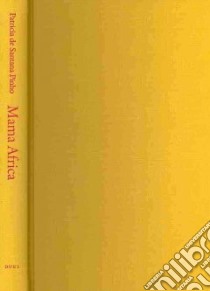Mama Africa - 9780822346548
Un libro in lingua di Pinho Patricia De Santana Langdon Elena (TRN) edito da Duke Univ Pr, 2010
- € 89.10
- Il prezzo è variabile in funzione del cambio della valuta d’origine
Pinho explores how Bahian cultural production influences and is influenced by black diasporic cultures and the idealization of Africa—to the extent that Bahia draws African American tourists wanting to learn about their heritage. Analyzing the conceptions of blackness produced by the blocos afro, she describes how Africa is re-inscribed on the body through clothes, hairstyles, and jewelry; once demeaned, blackness is reclaimed as a source of beauty and pride. Turning to the body's interior, Pinho explains that the myth of Mama Africa implies that black appearances have corresponding black essences. Musical and dance abilities are seen as naturally belonging to black people, and these traits are often believed to be transmitted by blood. Pinho argues that such essentialized ideas of blackness render black culture increasingly vulnerable to exploitation by the state and commercial interests. She contends that the myth of Mama Africa, while informing oppositional black identities, overlaps with a constraining notion of Bahianness promoted by the government and the tourist industry.
Informazioni bibliografiche
- Titolo del Libro in lingua: Mama Africa
- Sottotitolo: Reinventing Blackness in Bahia
- Lingua: English
- Autori : Pinho Patricia De Santana Langdon Elena (TRN)
- Editore: Duke Univ Pr
- Collana: Duke Univ Pr (Hardcover)
- Data di Pubblicazione: 01 Febbraio '10
- Genere: HISTORY
- Argomenti : Blacks Race identity Brazil Bahia (State
- Pagine: 266
- Dimensioni mm: 247 x 165 x 25
- ISBN-10: 0822346540
- EAN-13: 9780822346548


